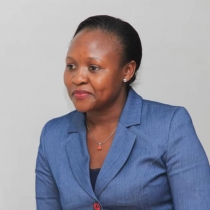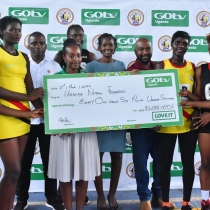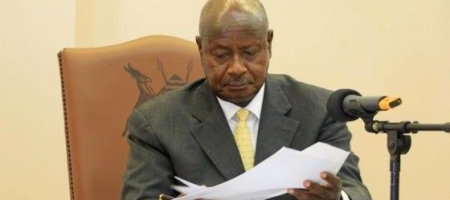
Miners Root for Shared Benefits in Mining Sector
By Max Patrick Ocaido
Miners have tasked government to harness good governance which will cause equal and shared benefits in the extractive industries.
Over the years, government has put in place a number of initiatives ranging from legal and institutional reforms as governance structures. However, stakeholders in the mining industry think that in order for the country to exploit her mineral potential, there is need to double efforts to attract private investment in mineral exploration and development, address issues of inadequate mining infrastructure, easy access to land for mining projects and development Policy and Legal Framework coupled with inadequacies in the mining policy, among others.
On Friday, the ministry of Energy and Mineral Development in partnership with Civil society organisations including Global Rights Alert, Action Aid Uganda, Transparency International concluded a two day annual Citizen Mining Conference as a platform for accountability, reflection and learning.
The 3rd Annual Citizens’ Convention on Mining that was held at Hotel Africana under the theme “Amplifying citizens voices, harnessing mineral wealth opportunities for Uganda” among others discussed the extent to which Uganda is benefiting from her minerals, assess whether the planned reforms in the mining sector will enhance citizen’s beneficiation and deliberate on how the Extractives Industries Transparency Initiative (EITI) can be a useful tool for the sector.
During the interaction, miners revealed how the industry is mainly affected by illicit financial flows and illegal trade. They also accused Police Minerals Protection Unit headed Moses Musinguzi of harassing Artisanal and Small Scale Miners and persecuting miners instead of enhancing the law.
"We have organized the people of Buhweju and enabled them form associations to serve their mining rights and spaces but they have still been evicted from the mines," said Bosco Bukya, Chairman, Uganda Association of Artisanal and Small-Scale Miners (UGASMA).
ACP Musinguzi however denied allegations of harassing miners especially in Buhweju saying that, “We went to Buhweju to sensitize and give information on both TV and Radio but when people heard that we were coming, we found they had disserted the mines but we still looked for them and sensitized them."
Carolyne Nakajubi, Programmes Manager, Global Rights Alert, Uganda said that despite all the challenges artisanal miners face, they have as Civil Society Organizations managed to support and help the Artisanal miners in organizing themselves and currently they have secured 34 mining licenses miners.
Saul Ongaria, Senior Economist at Ministry of Finance assured miners that government is committed to improve transparency and accountability in the extractives sector through Extractive Industries Transparency Initiative (EITI). EITI involves collection of data about mineral resources, verifying the collected data and ensuring that the public access and make meaning of the data.
“The implementation of EITI will minimize mismanagement, general more revenues and improve the investment climate for the country. We shall have better policies, laws and regulations through these EITI engagements,” Ongaria said.
On the opening day (Thursday), Winfred Ngabiirwe, the Executive Director, Global Rights Alert called for inclusiveness in the mining industry.
"It is our responsibility to reach out to those in power, those that don't have power and those that don't know anything and interest them in the conversation because their ideas and voices matter," Ngabiirwe said.
Links
- 175 views









































Join the conversation